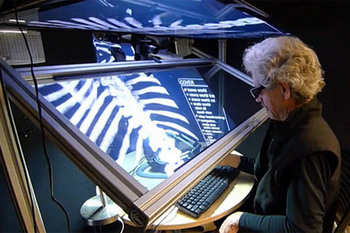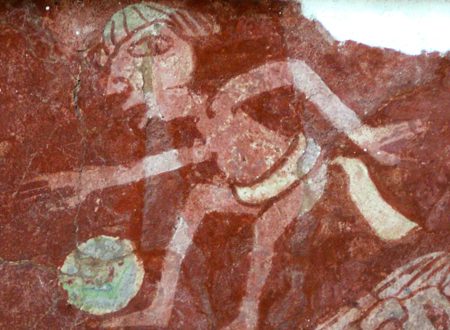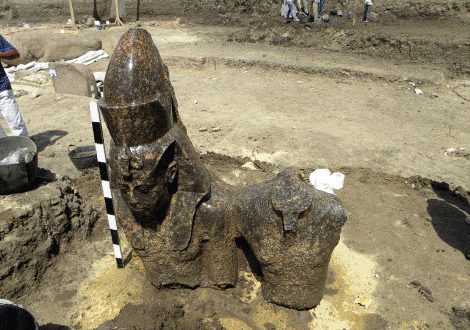 PASE Domesday, a database of Domesday Book linked to mapping resources, has been launched online today, ahead of tomorrows Domesday special to be broadcast on BBC Two (preview video ‘The Domesday Inquest’). In the documentary, Dr Stephen Baxter seeks to prove that the Domesday Book could not have been used to collect taxes, arguing that it is about something far more important than money. According to Dr Baxter, its real purpose was to confer revolutionary new powers on the monarchy in Norman England.
PASE Domesday, a database of Domesday Book linked to mapping resources, has been launched online today, ahead of tomorrows Domesday special to be broadcast on BBC Two (preview video ‘The Domesday Inquest’). In the documentary, Dr Stephen Baxter seeks to prove that the Domesday Book could not have been used to collect taxes, arguing that it is about something far more important than money. According to Dr Baxter, its real purpose was to confer revolutionary new powers on the monarchy in Norman England.
The Domesday Book
The Domesday Book is the product of a great survey of England commissioned by William the Conqueror and completed in 1086, twenty years after the then Duke landed with his 7,000 soldiers (Top 10 Norman Conquest Facts). It was written in Latin, and is England’s earliest surviving public record, a thorough survey of the who owned every piece of land and property in the the kingdom.
The making of Domesday Book was a huge logistical exercise. Commissioners set out across the country to attend intimidating local inquests. These established who owned what both in 1066, before the Norman Conquest, and in 1086, after 20 years of Norman rule. The results of these inquests were then collected, edited and written up, by one scribe. It consists of two independent works, the Little Domesday covering Norfolk, Suffolk and Essex and the Great Domesday, covering the rest of England, with a few omissions such as Anglo-Saxon London.
Domesday records the trauma of the Norman Conquest the greatest social and political upheaval in England’s history. It confirmed that land once owned by the English was now legally in the hands of the Normans. This was a revolution in land ownership. It was given the name Domesday Book by Anglo-Saxons (How does that sound? Anglo-Saxon Aloud for your iPhone!)who felt that its authority was as final as The Day of Judgement.
PASE Domesday Online Database
PASE Domesday (Prosopography of Anglo-Saxon EnglandDomesday)makes it possible to list, map and quantify the estates of the landholders named in the survey of conquered England and is the first database of Domesday Book linked to mapping resources to be made freely available online.
Thedatabase will form the basis of a new two-year research project on the aristocracy defeated by the Normans in 1066, Profile of a Doomed Elite.
“The breakthrough has been made possible by the wonders of modern technology, in selecting and arranging the data, in generating the maps, and in presenting the possibilities,”says Professor Simon Keynes, of the University of Cambridge’sDepartment of Anglo-Saxon, Norse and Celtic, and a co-director of the PASE project. “One can then begin to detect the patterns and to make the informed judgements which will help to produce a significant result.”
Yet, the new online database is not solely aimed at scholars. It is designed with abroader audience in mind.
Ever wondered who owned your town or village at the time of the Norman conquest? Its now possible to find out at the flick of a button, explains Dr Baxter, a Reader in Medieval History at King’s College London, and one of the projects co-directors.
Having done so, you can create maps and tables of the estates held by the same lords elsewhere in England. Results are delivered quickly, and the scale of the dispossession of the English by Norman billionaire-like barons comes vividly to life.
BBCTwo Domesday Special
PASEDomesday’s launch coincides with, and will be featured in, a one-hour documentary on Domesday Book to be broadcast on BBC2 (August 10, 20.00, part of the Norman Season), written and presented by Dr Stephen Baxter.
In this programme on the Domesday Book, Dr Stephen Baxter willreveals the human and political drama that lies within the parchment of England’s earliest surviving public record. Most historians believe that Domesday is some kind of tax book for raising revenue, but Baxter has his own theory. He seeks to prove that the Domesday Book could not have been used to collect taxes and he argues that it is about something far more important than money. Its real purpose was to confer revolutionary new powers on the monarchy in Norman England.




